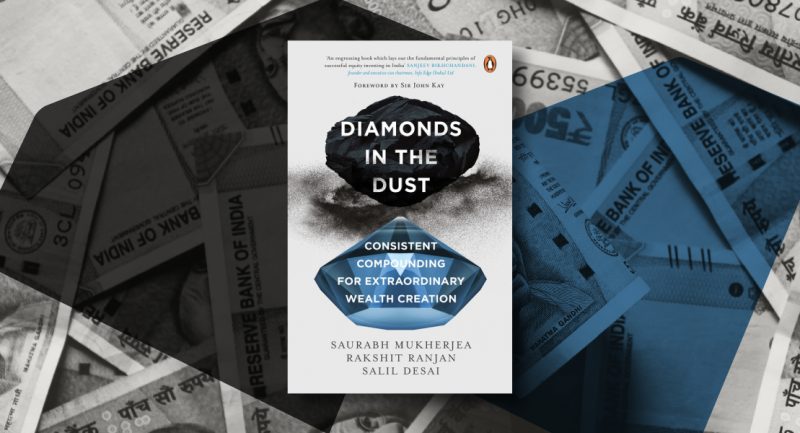
In the Learning Factory , Arun Maira narrates people-centric episodes that bring alive the values of the Tata Group, standards that combine the high-velocity practices as well as the old-fashioned principles that make the Tata Group the giant it is today. With insightful stories of conduct that are as practically implementable as they are inspiring, this is a blueprint for the individual as well as the business that seeks success through its community of leaders, workers and thinkers.
Read below an excerpt from the book:
When I finished college in 1964, barely two decades after the country became independent; I wanted to help build the new India. A career in business was not attractive then—because business was seen as a means of only making money—though one would earn much more in that field. The civil services were the way to serve the country.
However, in a job interview with the Tata Group’s directors, they explained that the Tatas also served the country. The conglomerate built industries to produce what the country had been previously compelled to import from abroad—steel, chemicals, trucks and buses. Industries created jobs. The interviewers pointed out what Mahatma Gandhi had said, that while he was fighting for India’s political freedom, Jamsetji Tata, the group’s founder, was fighting for India’s economic freedom. The Tatas built industries to produce many essential implements for India’s growth that were imported from abroad, such as steel, trucks and buses, and chemicals. I joined the Tata Group. I was selected for the Tata Administrative Service (TAS), which had been set up a few years earlier by J.R.D. Tata, the chairman of the Tata Group.
~
There was an acute shortage of foreign exchange in India during those years. The country could not afford to import what the people needed. Travel abroad was extremely restricted too. If one was permitted to travel, as I was for a business trip to Singapore in 1969, the Reserve Bank of India allowed a meagre 9 pounds sterling a day for all expenses. One could re-enter the country with only 500 rupees worth of goods purchased abroad. I returned with a bag full of cheap ‘foreign’ trinkets for my family and the staff in the office, purchased from a communist Chinese emporium in Singapore. The customs officer did not believe so many items could cost less than 500 rupees and asked for proof. There was a big hold-up in the customs queue, and I was greatly embarrassed when he spilt the contents of my bag on to the table.
Just then, a senior customs officer appeared. ‘Why the hold-up?’ he asked. ‘Because this person claims that he has spent less than 500 rupees,’ the agent said pointing at all the items from my bag. ‘What work do you do?’ the officer asked, addressing me. ‘I work for the Tatas, sir,’ I replied. Then a remarkable thing happened. The officer said to the agent, ‘If he works for the Tatas, he must be telling the truth.’ And he helped me put all my trinkets back in the bag, and said, ‘Sorry for the inconvenience, sir.’ That is how much the Tatas were trusted then!
Times have changed greatly. Now young people aspire to work in business rather than for the government. They can earn much more. Wealth has become a predominant measure of success. Management schools are rated by the salaries their graduates are offered by businesses.
Corporate success is measured by the stock price, and personal success by one’s wealth. While businesses are producing wealth for their investors and their senior executives, sadly, they are losing the trust of society. The Edelman Trust Barometer, and other global surveys, report that trust in business corporations has declined globally.
Corporations are viewed as self-serving, and insufficiently concerned about the impacts of their business on society and the environment.
My encounter with Indian customs is a story of the trust the Tatas enjoyed. J.R.D. Tata, the long-time chairman of the Tata Group, under whom I had the privilege to serve, said that whenever he had to make a difficult decision, he first asked himself what would be good for India and, second, what would benefit the Tata Group. Invariably, what was good for India, would turn out to be beneficial for the Tatas later, he said.
Business leaders are becoming aware of the decline in trust in large business corporations. They are becoming conscious of their responsibilities towards the environment and the masses around the world who are not able to earn adequate incomes. Consequently, Corporate Social Responsibility (CSR) has emerged as a new industry with a growing crop of professional consultants offering advice. Corporate responses to the need to rethink business responsibility fall into three types: ‘Look Good’; ‘Do Good’; and, the most difficult, ‘Be Good’.
The ‘look good-ers’ put CSR close to their public relations’ departments. Their thrust is towards reporting how much they spend on community activities. They also spend on advertising their
projects. The gloss covers up the shallowness in substance and in sincerity.
The ‘do good-ers’ are more sincere. They set up departments dedicated to CSR and hire CSR professionals. Some deploy their wealth in ‘trusts’ devoted to CSR. The Tatas have been forerunners of this approach. Many wealthy industrialists in the West have also created trusts with wealth accumulated from businesses that had earned social opprobrium by exploiting labour and damaging the environment. Thus, these industrialists could whitewash over their past sins.
‘Be good’ requires deep change within the business itself, more than what ‘doing good’ requires with trusts and philanthropy on the side. The ethical question for business leaders is not how much they have given back, but how the wealth was generated in the first place. People are asking: who has accumulated society’s wealth, and at what cost to communities and the environment? The late twentieth century concept of capitalism—that the business of business must be only business—when combined with nineteenthcentury concepts of philanthropy—accumulate a lot of wealth and give back some—cannot provide solutions to the twenty-first century’s systemic challenges. Fragile ecosystems and lop-sided economic growth demand a paradigm shift in the concept of business responsibility.
Get your copy here to know more about the Tata way of business









